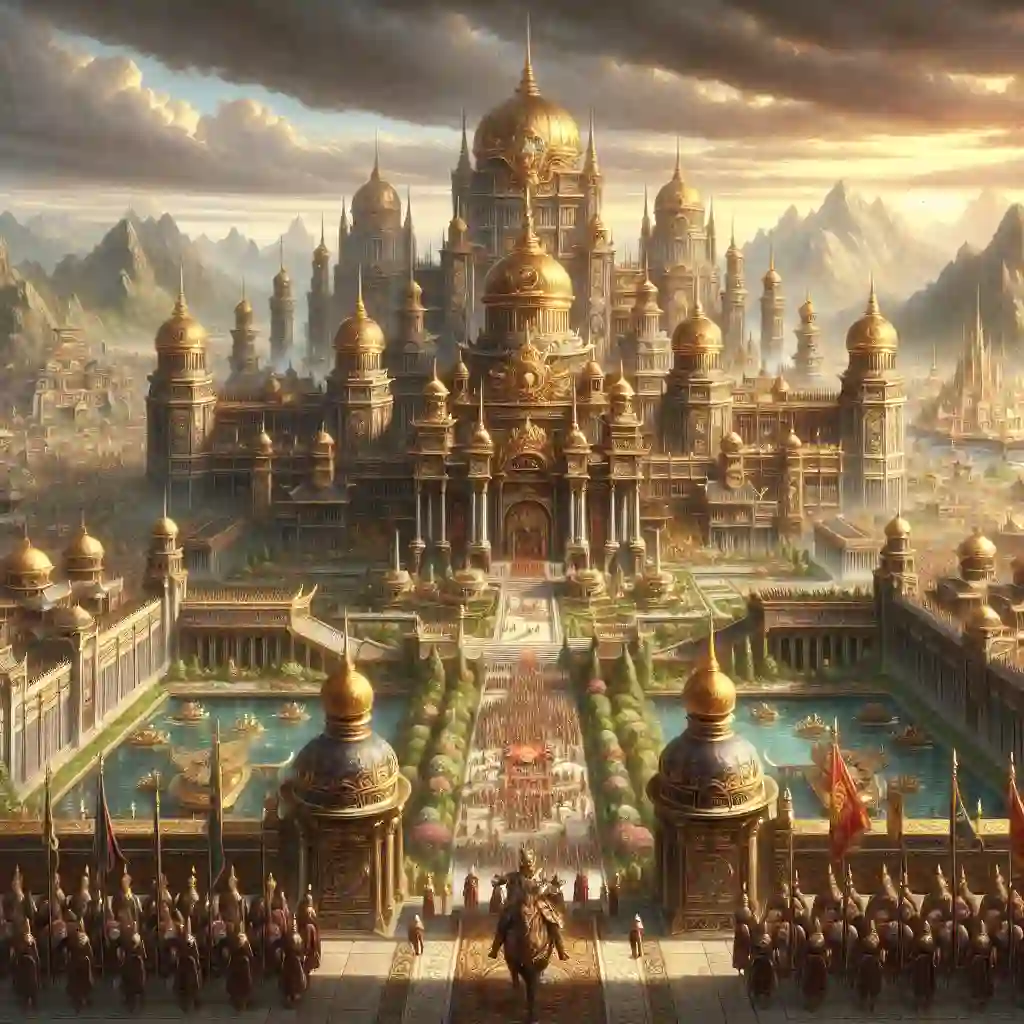empireと同じ語根の英単語
語根(英語) in-, en-, i-, il-, im-
- -中に
- -上に
- (他動詞化)
- (強意)
語根parapar
- 準備する
empireの主な意味と例文
- 1名詞
意味 - →
コアイメージ
支配・権威
- 帝国
- 王朝
- 領地
a large territory or group of territories controlled by one ruler or government
例文 The British Empire once spanned several continents.
大英帝国はかつていくつかの大陸にまたがっていました。
An empire typically includes various cultures and ethnic groups within its domain.
帝国は通常、その領域内にさまざまな文化や民族集団を含んでいます。
empireのWordNet
- 1名詞
意味 帝国領
the domain ruled by an emperor or empress; the region over which imperial dominion is exercised
皇帝または皇后によって支配される領域。帝国の支配が行われる地域。
和訳例 - 帝国領
- 帝国の統治地域
同義語 - empire
- imperium
上位語 具体例 an empire established by Augustus in 27 BC and divided in AD 395 into the Western Roman Empire and the eastern or Byzantine Empire; at its peak lands in Europe and Africa and Asia were ruled by ancient Rome
紀元前27年にアウグストゥスによって設立され、紀元395年に西ローマ帝国と東ローマ帝国(ビザンツ帝国)に分割された帝国。最盛期にはヨーロッパ、アフリカ、アジアの土地が古代ローマによって支配されていた
an ancient empire to the west of Israel; centered on the Nile River and ruled by a Pharaoh; figured in many events described in the Old Testament
イスラエルの西に位置した古代帝国。ナイル川を中心に繁栄し、ファラオが統治した。旧約聖書の多くの出来事に関連している。
an empire in southern Asia created by Cyrus the Great in the 6th century BC and destroyed by Alexander the Great in the 4th century BC
紀元前6世紀にキュロス大王によって創設され、紀元前4世紀にアレクサンダー大王によって滅ぼされた南アジアの帝国
a Turkish sultanate of southwestern Asia and northeastern Africa and southeastern Europe; created by the Ottoman Turks in the 13th century and lasted until the end of World War I; although initially small it expanded until it superseded the Byzantine Empire
アジア南西部、アフリカ北東部、ヨーロッパ南東部にまたがるトルコのスルタン国。13世紀にオスマン帝国によって作られ、第1次世界大戦の終わりまで続いた。当初は小規模だったが、ビザンチン帝国を凌駕するまで拡大した。
a former empire in eastern Europe and northern Asia created in the 14th century with Moscow as the capital; powerful in the 17th and 18th centuries under Peter the Great and Catherine the Great when Saint Petersburg was the capital; overthrown by revolution in 1917
モスクワを首都として14世紀に創設された東欧と北アジアのかつての帝国。17世紀と18世紀にはピョートル大帝とエカテリーナ大帝の下で強大な力を持ち、当時の首都はサンクトペテルブルクだった。1917年の革命で倒された。
派生語 - imperial
befitting or belonging to an emperor or empress
皇帝または女帝にふさわしい、または皇帝または女帝に属する
- 2名詞
意味 帝国
a group of countries under a single authority
単一の権威のもとにある国々のグループ。
和訳例 - 帝国
- 帝政国家
同義語 - empire
例文 the British created a great empire
イギリスは大帝国を築いた
上位語 the organization that is the governing authority of a political unit
政治単位の統治権を持つ機関または組織
- 3名詞
意味 エンパイア(リンゴの品種)
an eating apple that somewhat resembles a McIntosh; used as both an eating and a cooking apple
マッキントッシュに似たリンゴの品種で、生食用および料理用の両方に使用される。
和訳例 - エンパイア(リンゴの品種)
- エンパイア(食用品種のリンゴ)
- エンパイア(リンゴ)
同義語 - empire
上位語 an apple used primarily for eating raw without cooking
調理せずに生で主に食べるためのリンゴ
- 4名詞
意味 企業集団
a group of diverse companies under common ownership and run as a single organization
共通の所有権のもとに、多様な企業が一つの組織として運営されている集団。
和訳例 - 企業集団
- 企業帝国
- コンツェルン
同義語 - empire
- conglomerate
上位語 a business firm whose articles of incorporation have been approved in some state
ある州で定款が承認された企業
下位語 a conglomerate of publishing companies
出版会社の集合体
- 5名詞
意味 帝政
a monarchy with an emperor as head of state
皇帝を国家元首とする君主制。
和訳例 - 帝政
- 皇帝制
同義語 - empire
上位語 an autocracy governed by a monarch who usually inherits the authority
君主が通常は権威を継承する専制国家
下位語 the imperial government of Napoleon III in France from 1852-1870
1852年から1870年までのフランスにおけるナポレオン三世の帝政政府
an empire established by the Mogul conquerors of India that reigned from 1526 to 1857
1526年から1857年までインドを支配したムガル征服者によって成立した帝国
派生語 - imperial
relating to or associated with an empire
帝国に関連する
